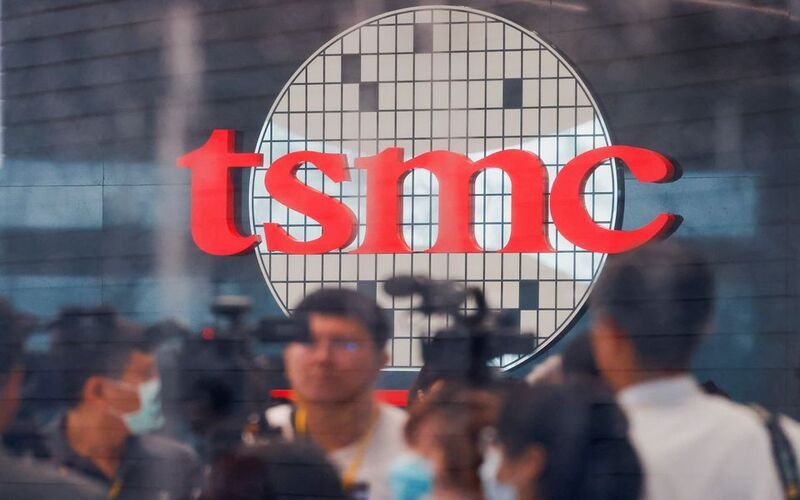Apple suppliers slide on China anxiety and threats from Huawei. On Friday, China’s expanding iPhone bans for government employees sparked a selloff in global tech equities as Apple (AAPL.O) and its suppliers worried about Sino-U.S. tensions and Huawei rivalry.
Following rumors, Beijing ordered certain central government officials to cease using iPhones at work in recent weeks. Apple shares fell 6.4% in the preceding two days, erasing $190 billion from its market valuation.
On Friday, Wall Street experts thought the selloff was excessive, and Apple’s revenue loss would be minor due to the phone’s popularity in China. After two days of losses, Apple shares rose 1.3% on Friday.
Huawei’s foldable Mate X5 and Mate 60 Pro+, which resisted U.S. sanctions, are challenging Apple.
Some observers think Huawei’s activities are a first step in China’s “national champion”‘s return to challenge Apple after U.S. sanctions four years ago. Following a dismal quarter for iPhone sales, Apple will release a new iPhone on Tuesday.
“We believe Huawei’s activity this time was well prepared and not sudden,” said Counterpoint analyst Ivan Lam, whose latest product forecast surpasses earlier estimates. “It can manage target consumer psychological expectations before Apple’s press conference.”
China, Apple’s third-largest market after the Americas and Europe, has been a bright light for iPhone sales. Huawei’s smartphone business collapsed in 2019 as the U.S. curtailed tech exports.
Rare promotions from third-party merchants in February gave 10% discounts on the iPhone 14 Pro, helping Apple’s sales in China this year. Analysts told Reuters that the reductions might hurt Apple’s new product sales in the following days.
Apple camera lens supplier Largan Precision (3008. T.W.) slumped more than 4% in Taipei on Friday, while contract chipmaker TSMC (2330. T.W.) declined 0.6%. Chinese iPhone factory owner Luxshare Precision Industry (002475. S.Z.) declined 2%.
Qualcomm (QCOM.O) rose 0.1% while Broadcom (AVGO.O) fell 0.4% on Friday.
Huawei suppliers increased profits. Shares in Semiconductor Manufacturing International Corp (SMIC), which may have produced Huawei’s latest smartphone’s sophisticated chip, climbed 0.7%.
One major state-owned business (SOE) employee stated China’s iPhone bans included visitors.
“Anyone, including business visitors, who enters our work area cannot bring in their iPhones,” said one of two SOE workers who were informed of the prohibition in recent weeks.
The anonymous source stated the corporation subsidized staff to switch to local brands by 100-200 yuan ($13-$26). Other SOE employees told Reuters they were not forbidden from using iPhones.
The number of central government personnel is unknown, but Bank of America predicted a ban might decrease iPhone sales by five million from China’s 50 million.
The Mate 60 Pro may boost Huawei’s smartphone sales by 65% to 38 million this year without “non-commercial risks,” says T.F. International Securities analyst Ming-Chi Kuo.
However, Canalys analyst Nicole Peng warned Huawei might threaten local counterparts. At the same time, Morgan Stanley’s Erik Woodring said Friday, “Apple’s ecosystem in China remains very strong,” with the typical iPhone user in China owning 2.5 Apple devices.
Several Wall Street experts said the limits indicated that even a huge Chinese corporation with solid government relations is vulnerable to escalating tensions. Apple has moved some manufacturing out of China due to COVID-19 regulations.
“The only way Apple could anger Beijing is by moving supply chains out of China at a pace or to a degree Beijing is uncomfortable with,” Evercore ISI analyst Neo Wang said.
“If so, Beijing should penalize Apple by overusing the ‘security’ card. Whether what we’re seeing is related is uncertain “Wang said.
Washington wants to restrict China’s access to advanced semiconductor technology, while Beijing wants to reduce its dependence on American innovation.
A TechInsights disassembly found more Chinese semiconductor components in the Mate 60 Pro than in prior generations, indicating Beijing’s improvement. The U.S. Commerce Department said Thursday it wants further information on the “character and composition” of the new Huawei chip that may breach trade restrictions.









































Comment Template